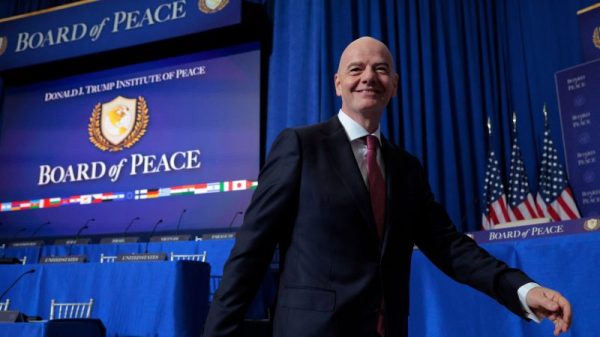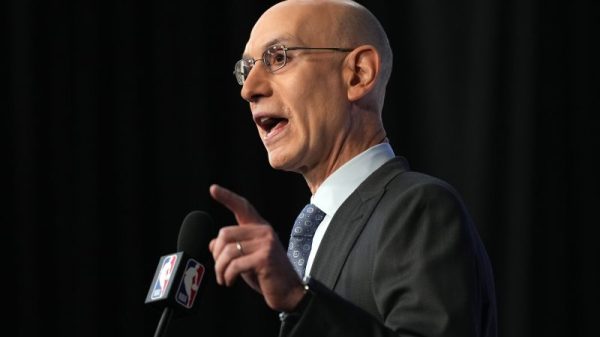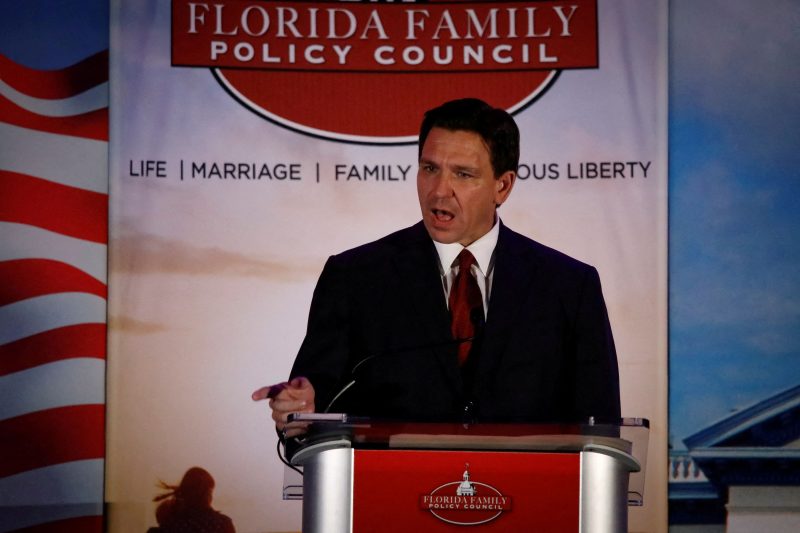Florida Gov. Ron DeSantis previewed more of his 2024 pitch Monday night with a new emphasis on the next president’s ability to push the Supreme Court further to the right, calling for new justices in the mold of Clarence Thomas and “improvements” to others such as Chief Justice John G. Roberts Jr., a Republican appointee who has sometimes sided with the court’s liberal wing.
Speaking to a Christian media conference in Orlando, the soon-to-be GOP presidential candidate also leaned into the idea that he could serve eight years if elected — an implicit contrast with former president Donald Trump, the Republican polling leader, who could serve only four more years. DeSantis recounted how he flipped the Florida Supreme Court to conservative control as governor and speculated to an enthusiastic crowd that several U.S. Supreme Court justices could need replacements over the next two presidential terms.
“I think if you look over the next two presidential terms, there is a good chance that you could be called upon to seek replacements for Justice Clarence Thomas and Justice Samuel Alito and the issue with that is, you can’t really do better than those two,” DeSantis said in his address to the National Religious Broadcasters Convention. He went on to say that, “if you replace a Clarence Thomas with somebody like a Roberts or somebody like that, then you’re gonna actually see the court move to the left, and you can’t do that.”
DeSantis suggested that those two justices, as well as Roberts and liberal Sonia Sotomayor, could require replacements over two presidential terms.
“So it is possible that in those eight years, we have the opportunity to fortify justices … Alito and Thomas as well as actually make improvements with those others, and if you were able to do that, you would have a 7-2 conservative majority on the Supreme Court that would last a quarter century,” DeSantis added, to raucous applause.
The speech marked some of DeSantis’s most extensive public comments on the federal judiciary, a domain Trump helped reshape as president and an issue that has long animated the conservative movement. Trump installed three conservative justices on the high court, paving the way for the overturning of Roe v. Wade, which had established a constitutional right to abortion for half a century. Conservative leaders have credited Trump for his appointments up and down the federal judiciary.
But Trump has angered some abortion opponents with recent suggestions that Republicans have veered too far right on the issue, which Democrats made central to winning campaigns in last year’s midterms.
While DeSantis has long criticized “judicial activism” in Florida, the extended discussion of U.S. Supreme Court appointments was a shift from his usual political speeches and came as the governor makes his presidential pitch increasingly explicit. He’s expected to jump into the 2024 race officially this week after months of traveling the country to lay groundwork and raise his profile.
Monday’s speech provided a particular window into the case he’ll make to evangelical voters, an important constituency in the GOP primaries. DeSantis’s team has laid out plans to campaign especially heavily in Iowa, the first-in-the-nation Republican caucus state where some evangelical leaders have signaled a desire to move on from Trump. DeSantis has also pushed Florida policy to the right on social issues that matter to many religious conservatives.
On Monday, the governor also promoted the six-week abortion ban he helped enact this year in Florida — a divisive topic he tends to brush past, even with staunchly conservative audiences. Some Republicans worry he has gone too far to the right on an issue that galvanizes Democrats and alienates many moderates, and DeSantis devoted just 20 or so seconds to abortion restrictions in a 40-minute speech at this weekend’s gala for the Florida Family Policy Council, the most prominent antiabortion group in his state.
His comments on abortion at the National Religious Broadcasters Convention were still brief — but he was more specific about the substance of Florida’s new legislation, saying it is meant “to protect an unborn child that has a detectable heartbeat.”
He was drowned out by extended cheers.
“It is the right thing to do,” DeSantis said.
In many ways, DeSantis’s remarks mirrored the speeches he has given around the country this spring while preparing for a presidential run. He got big cheers as he accused a wide range of institutions of “wokeness” or liberal excess and detailed his response, including restrictions on school curriculums and a bill that takes aim at investment practices that consider environmental impacts.
But he also tailored the remarks to a Christian crowd, urging people to “put on the full armor of God” and alleging that “the people that are in power now do not like people of faith” as he called to overhaul the government “bureaucracy.”



























